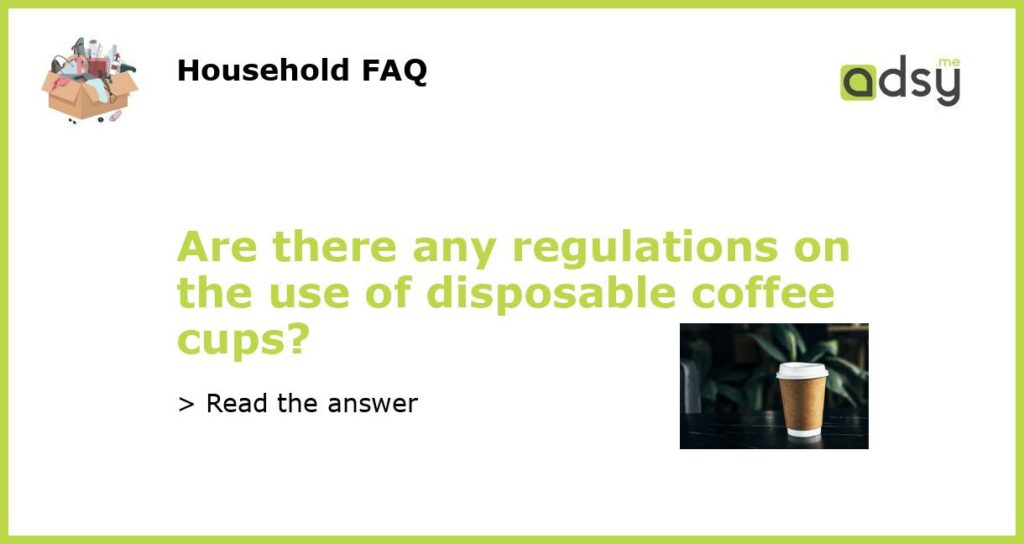Regulations on Disposable Coffee Cups
Disposable coffee cups have become a ubiquitous accessory for millions of coffee drinkers worldwide. In fact, most people cannot start their day without their daily dose of caffeine, and the convenience of disposable coffee cups has made it a worthy choice over ceramic or glass cups. However, the detrimental ecological impact of these cups has become a widespread concern for many citizens and environmental organizations. The question is, are there any regulations on the use of disposable coffee cups?
What are Disposable Coffee Cups?
Disposable coffee cups are single-use cups designed to be used once and then discarded. These cups come in different sizes, shapes, and materials, but the most common disposable coffee cups are made of paper and plastic. The disposable nature of these cups has caused widespread environmental concern, with more than eight million tons of disposable coffee cups ending up in landfills each year. The high demand for disposable coffee cups has led to a significant increase in pollution caused by the cup’s intricate design that makes it difficult to recycle.
The Environmental Impacts of Disposable Coffee Cups
The production and disposal of disposable coffee cups have far-reaching environmental impacts. The paper used in these cups contributes to deforestation, greenhouse gases, and water pollution. The plastic lid, which is often not recyclable, litters streets, pollutes oceans, and harms marine life. Additionally, the intricate design of disposable coffee cups involves laminating paper with a thin layer of plastic, which makes it difficult to separate and recycle. In many cases, disposable coffee cups end up in landfills, where they decompose poorly and release methane, a potent greenhouse gas that contributes to climate change.
The Regulations on Disposable Coffee Cups
Despite the environmental concerns surrounding disposable coffee cups, there are currently no regulations in place to control their use. However, several countries, including Canada, the UK, and Australia, have proposed legislation to reduce the number of disposable coffee cups used. The Canadian government is considering a national ban on disposable plastic products, including coffee cups that will take effect in 2021. In the UK, the government is proposing a tax on single-use cups, while some coffee shops have started offering discounts to customers who bring reusable cups.
The Way Forward
The widespread impact of disposable coffee cups requires a collective effort to address this issue. While the proposed regulations on reducing the use of disposable coffee cups are a step towards mitigating environmental damages caused by its production and disposal, individuals also have a role to play. Consumers can opt for reusable coffee cups made of glass or stainless steel, which are less harmful to the environment. By owning a reusable coffee cup, consumers can reduce disposable coffee cup waste, and this will ultimately reduce the number of cups that end up in landfills. It is important that everyone takes responsibility for the environment and takes steps to ensure we leave a cleaner, healthier planet for future generations.






